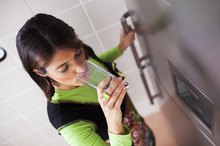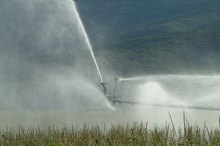Efficiency of Heating Water on Stove Vs. an Electric Tea Kettle
Misconceptions and debates abound on the issue of whether an electric kettle or a stove-top kettle is more efficient at boiling water 1. The answer depends on your stove’s efficiency, your electric kettle’s efficiency and the types of efficiency that concern you. Generally electric kettles seem to be the most energy efficient, but the most cost-efficient method may be a gas stove, depending on local prices.
Components
Grist’s Ask Umbra column points out that electric or gas stoves release much of their heat into the air around the kettle, because only part of the heating element touches the kettle. In contrast, electric kettles have enclosed heating elements that heat only the water.
Energy Usage
Gas Stove Burner Safety
Learn More
In an experiment conducted by Treehugger.com, an electric kettle significantly outperformed an electric stove and a microwave, using 81 percent of the energy expended in the time it took to boil the water, as opposed to 30.5 percent for the electric stove and 47 percent for the microwave 2. The Plotwatt Home Efficiency blog conducted a similar experiment and found that the electric kettle outperformed a gas stove and a microwave in energy efficiency 2.
Energy Source
After both above experiments were published, readers raised questions about the efficiency of electricity generation and transmission, particularly for coal power plants versus natural gas. Power plants that convert coal into electricity are less efficient and more polluting than those that convert natural gas into electricity; in addition, the transmission of natural gas itself is more efficient than electrical transmission. An electric kettle is more cost efficient than an electric stove, but it may or may not be cheaper to operate than a gas stove. According to Naturalgas.org, natural gas is up to 30 percent cheaper than electricity.
- After both above experiments were published, readers raised questions about the efficiency of electricity generation and transmission, particularly for coal power plants versus natural gas.
- An electric kettle is more cost efficient than an electric stove, but it may or may not be cheaper to operate than a gas stove.
User Issues
Cons of Recycling
Learn More
Many electric kettles have automatic shut-offs; the kettle turns off when the water boils. This feature can save you money in kettle replacement and energy bills. On the other hand, you may find that you turn on the electric kettle and forget about it because you know it will turn itself off. You may end up having to use more energy to boil the water again. You could gain additional efficiency when boiling water by carefully measuring only the amount of water you need 1.
- Many electric kettles have automatic shut-offs; the kettle turns off when the water boils.
- You could gain additional efficiency when boiling water by carefully measuring only the amount of water you need 1.
Cleaning
The Natural Resources Canada website recommends cleaning your electric kettle regularly to remove mineral deposits that can decrease the efficiency of the kettle’s heating element. Some retailers sell special kettle descaling agents, but you can use white vinegar, warm water and a scouring pad with the same effectiveness.
Related Articles
References
Writer Bio
Erica Leigh has been writing and editing professionally since 2005, contributing to a technology and education nonprofit, renewable energy companies and various websites. Leigh holds bachelor's degrees in anthropology and linguistics from the University of Washington.









